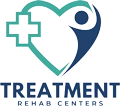At TreatmentRehabCenters.org we know when you’re looking for help for mental health or substance abuse issues whether for yourself or someone you love the cost of treatment can be a big concern.
You’re not alone. Many people wonder about the cost and when tax time rolls around especially we get asked: are residential treatment centers tax deductible?
In short, yes, but there is more you need to know. That’s why in this article we’ll cover the tax implications of residential treatment and give you the information you need to make smart decisions about your health and finances.
What Are Eligible Medical Expenses for Residential Treatment?
Let’s stop asking is drug rehab tax deductible, and break down how and when it can be reported as valid deductible medical expenses. If your stay at a residential treatment center meets the above criteria you may be able to deduct the following expenses:
- Room and board at the treatment facility
- Meals provided by the facility
- Medical treatments and therapy sessions
- Prescription medications
- Transportation to and from the treatment center
Insurance can reduce out-of-pocket costs for these treatments but any expenses reimbursed by insurance can’t be deducted. Any expenses reimbursed by insurance or paid for with pre-tax dollars (such as through a Health Savings Account) can’t be deducted.
Tax Deductions for Rehab
Tax deductions are a great way to reduce your taxable income and therefore your tax liability. The Internal Revenue Service (IRS) allows individuals to deduct certain expenses including medical expenses from their taxable income.
To qualify for a tax deduction the expense must be a qualified medical expense and the total medical expenses must be more than 7.5% of your adjusted gross income (AGI).
Understanding how tax and itemized deductions work will help you get the most tax benefit and reduce your overall tax bill.
Medical Expense Deductions
Before we get into residential treatment centers let’s understand medical expense deductions in general.
The Internal Revenue Service (IRS) allows taxpayers to deduct qualified medical expenses that are more than 7.5% of their adjusted gross income (AGI). This can reduce your taxable income and overall tax bill.
Alcohol and drug rehab costs can also be included in medical expense deductions and these costs can vary depending on insurance coverage, type of treatment center and amenities offered.
Are Residential Treatment Centers Medical Expenses?

The good news is that in many cases the costs associated with residential treatment centers can be medical expenses for tax purposes.
But here are some important criteria to consider:
- The treatment must be for a diagnosed medical condition including mental health disorders or substance abuse issues.
- The care must be prescribed by a doctor or qualified healthcare professional.
- The primary purpose of the stay must be for medical care, not personal reasons or general well-being.
How to Claim Medical Expenses on Your Taxes
To claim medical expenses on your taxes you must itemize your deductions on Schedule A (Form 1040). This allows you to deduct medical expenses for yourself, your spouse, and your dependents.
Valid medical expenses include costs related to the diagnosis, mitigation, treatment, and prevention of disease and medical services related to substance abuse.
Expenses for residential treatment centers including meals and lodging provided as part of the treatment can also be deducted. Be sure to keep accurate records of your medical expenses including receipts and invoices to support your tax deduction claims.
What to Document for Tax Deductions
To claim medical expense deductions for residential treatment you’ll need to keep records. This includes:
- Receipts for all expenses related to your treatment
- Medical records and prescriptions showing the medical necessity of the treatment
- Letters from healthcare providers detailing your diagnosis and treatment plan
Keep accurate records in case of an audit or if the IRS requests more information on your deductions.
Taxes and Substance Abuse Treatment Specifics
For those seeking treatment for substance abuse disorders, there’s more to consider:
Inpatient Programs
Inpatient programs for substance abuse disorders are medical expenses. The costs of these programs including room and board can be deducted if they meet the IRS medical care criteria.
Outpatient Treatment and Support Groups
It is not residential but is worth noting that outpatient treatment programs and even participation in support groups like Alcoholics Anonymous (AA) or Narcotics Anonymous (NA) can also be deductible medical expenses. This includes transportation to and from meetings.
Mental Health Treatment and Deductions
Mental health treatment at residential facilities is subject to the same rules as other medical expenses. This can include treatment for:
- Depression
- Anxiety disorders
- Eating disorders
- Post-traumatic stress disorder (PTSD)
- Bipolar disorder
It must be medically necessary and prescribed by a qualified healthcare provider.
Restrictions and Considerations on Deducting Rehab Expenses

While the deduction can help with some of the financial burden there are some limitations and considerations to be aware of:
7.5% AGI Threshold
You can only deduct the amount of your medical expenses that exceed 7.5% of your adjusted gross income. So if your AGI is $50,000 you can only deduct medical expenses above $3,750.
Itemized vs. Standard Deduction
To claim medical expense deductions you must itemize your deductions on your return. This means you’ll give up the standard deduction which may or may not be beneficial to you depending on your individual tax situation.
State Tax
While we’ve focused on federal tax deductions it’s worth noting that state tax laws may vary. Some states may have additional deductions or different rules for medical expenses. Consult with a tax professional familiar with your state’s tax code for specifics.
How to Maximize Your Deduction
To maximize your deduction you’ll need to track all your medical expenses throughout the year. Consider using a spreadsheet or tax software to itemize your deductions.
And consult a tax professional to make sure you’re taking all the deductions you can.
And setting aside pre-tax dollars for medical expenses through a Health Savings Account (HSA) or Flexible Spending Account (FSA) can reduce your tax liability even more. Stay organized and informed and you’ll maximize your deduction and keep more of your money.
Get Professional Help
Residential treatment center tax deductions can be complicated. It’s always a good idea to consult with a tax professional or accountant who can give you personalized advice.
They can help you decide if medical expense deductions are the right strategy for your overall tax situation.
Put Treatment Over Tax Deduction Consideration
While the deduction can be a nice bonus it’s important to put your health and well-being above financial considerations.
The decision to go to a residential facility should be based on your medical needs and your healthcare provider’s recommendations. Choose the best rehab center for your needs and goals in seeking care, not based on the biggest write-off possibility,
Residential Treatment and Tax Write-Offs
Residential treatment centers can provide life-saving care for those struggling with mental health or substance abuse issues. While the cost can be high, knowing the tax implications can help you make better decisions about your treatment and financial planning.
Remember tax laws and regulations change so stay informed and get current advice from tax professionals.
By keeping track of your expenses and understanding the rules for medical deductions you may be able to reduce your tax burden and get well.
If you’re considering treatment at a residential facility and have questions contact us. The friendly team at TreatmentRehabCenters.org is here to help. Call us today to talk about your situation and get treatment options for you.
Disclaimer: This article is for general information only and not for legal or tax advice. Consult a tax professional for personalized advice for your situation.
Treatment Center Tax Deduction FAQs

What is a medical expense for tax purposes?
A medical expense is any expense related to the diagnosis, cure, mitigation, treatment or prevention of disease or medical services related to substance abuse.
Can I deduct treatment center expenses?
Yes, expenses for treatment centers including meals and lodging provided as part of treatment are medical expenses and can be deducted.
How do I deduct rehab medical expenses?
You deduct medical expenses on your taxes by itemizing on Schedule A (Form 1040).
What is the medical expense deduction limit for rehab?
The medical expense deduction limit is 7.5% of your adjusted gross income (AGI). You can deduct medical expenses above this limit.
Can I deduct mental health services?
Yes, mental health services including therapy and counseling can be deducted as medical expenses.
Can I deduct drug or alcohol rehab?
Yes, drug or alcohol rehab including residential treatment centers can be deducted as medical expenses.
How do I keep track of my medical expenses during treatment?
Keep track of your medical expenses including receipts and invoices to support your deduction. Use a spreadsheet or tax software to itemize.











